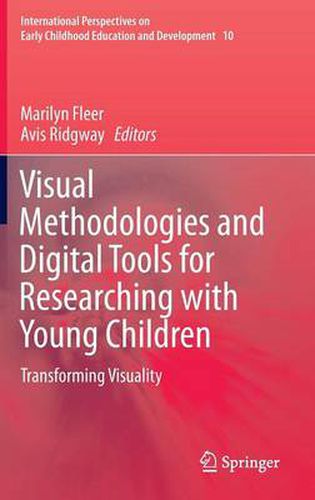Readings Newsletter
Become a Readings Member to make your shopping experience even easier.
Sign in or sign up for free!
You’re not far away from qualifying for FREE standard shipping within Australia
You’ve qualified for FREE standard shipping within Australia
The cart is loading…






This title is printed to order. This book may have been self-published. If so, we cannot guarantee the quality of the content. In the main most books will have gone through the editing process however some may not. We therefore suggest that you be aware of this before ordering this book. If in doubt check either the author or publisher’s details as we are unable to accept any returns unless they are faulty. Please contact us if you have any questions.
This book makes an original contribution to researching child-community development so that those with specific interests in early childhood education have new theoretical tools to guide their research practices. The book explicitly theorises the use of digital visual tools from a cultural-historical perspective. It also draws upon a range of post-structuralist concepts for moving research and scholarship forward. Examples of visual technologies from research in different cultural communities are foregrounded.
In particular this book introduces contemporary methodologies for researching child and community development with a focus on visual methodology so the dynamics of development can be captured over time and analysed historically, culturally, socially, ecologically and psychologically through a range of iterative techniques. Visual technology was not freely available in Vygotsky’s time for example, and therefore potentially represents an extension of his genetic experimental approach to researching child development.
The book presents a range of methodological arguments about research into child and community development through which new conceptions for research centred on young children have been created. The authors of the chapters also discuss why a more holistic, dynamic and ethical view of research is needed for generating new knowledge about child development in a range of cultural contexts.
$9.00 standard shipping within Australia
FREE standard shipping within Australia for orders over $100.00
Express & International shipping calculated at checkout
This title is printed to order. This book may have been self-published. If so, we cannot guarantee the quality of the content. In the main most books will have gone through the editing process however some may not. We therefore suggest that you be aware of this before ordering this book. If in doubt check either the author or publisher’s details as we are unable to accept any returns unless they are faulty. Please contact us if you have any questions.
This book makes an original contribution to researching child-community development so that those with specific interests in early childhood education have new theoretical tools to guide their research practices. The book explicitly theorises the use of digital visual tools from a cultural-historical perspective. It also draws upon a range of post-structuralist concepts for moving research and scholarship forward. Examples of visual technologies from research in different cultural communities are foregrounded.
In particular this book introduces contemporary methodologies for researching child and community development with a focus on visual methodology so the dynamics of development can be captured over time and analysed historically, culturally, socially, ecologically and psychologically through a range of iterative techniques. Visual technology was not freely available in Vygotsky’s time for example, and therefore potentially represents an extension of his genetic experimental approach to researching child development.
The book presents a range of methodological arguments about research into child and community development through which new conceptions for research centred on young children have been created. The authors of the chapters also discuss why a more holistic, dynamic and ethical view of research is needed for generating new knowledge about child development in a range of cultural contexts.